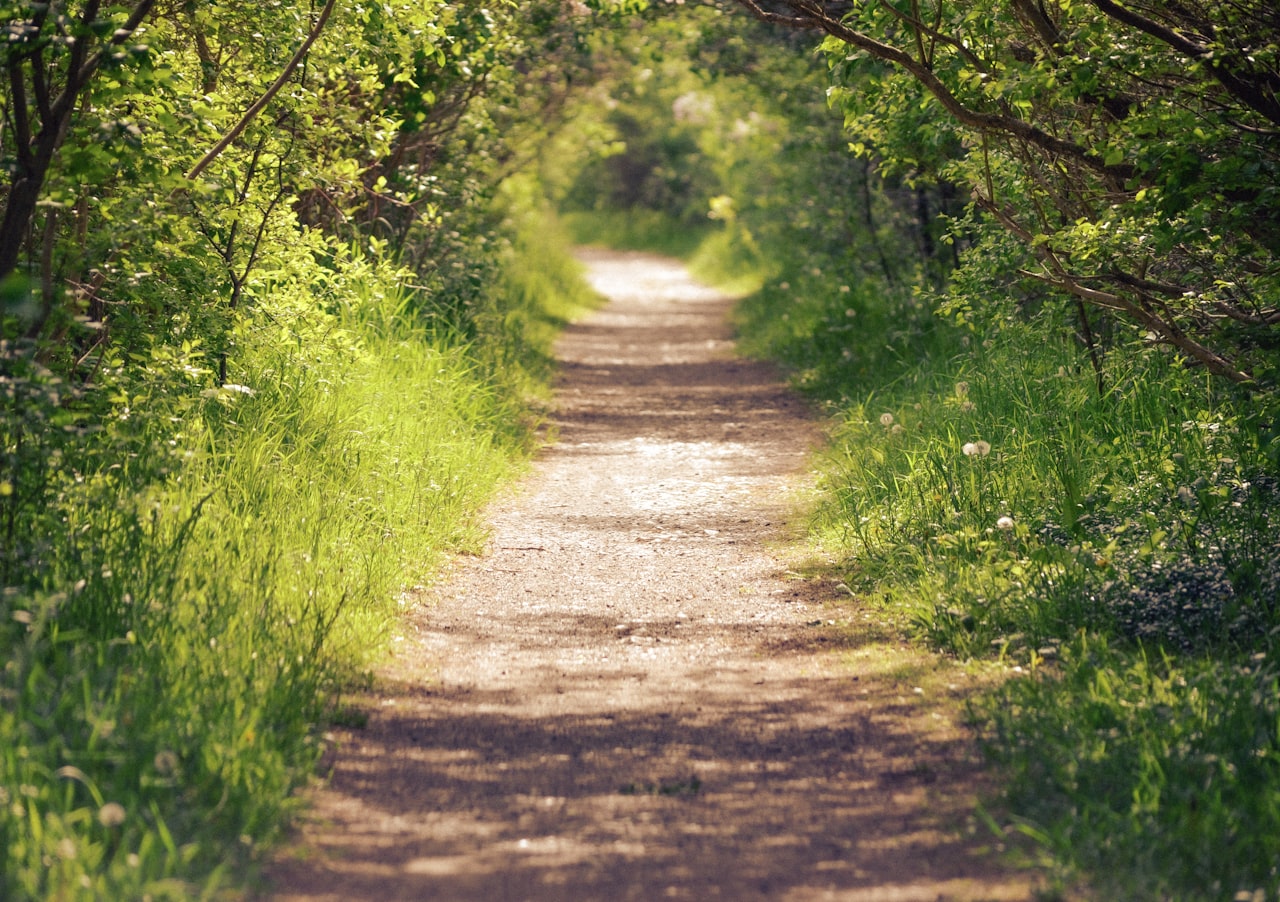There’s no better way to let go of stress, calm your mind, get fit, and stay healthier longer than getting outside and enjoying the incredible outdoor spaces of our beautiful state. North Carolina’s extensive system of walkways, bikeways, and rural trails – more commonly known as greenways – is a recreational resource unlike any other.
What is a Greenway?
A greenway is a stretch of trail, usually passing through a scenic area – urban and/or rural – that is designated for recreational use and is usually environmentally protected. Old rail lines or disused public paths or even newly designed trails through neighborhoods and public areas provide walkers, bikers, and sometimes horseback riders a place where the path is given priority as it crosses through streets and wooded areas and across roads and commercial areas.
The Physical and Mental Benefits of Outdoor Exercise
The tangible benefits of exercise – lower blood pressure, better circulation, weight loss, stronger bones, and fewer aching joints, for instance – are very real, and being outdoors adds an element of interest that, for some, makes the experience even more enjoyable. Science, too, has shown that increased activity helps to increase both productivity and creativity. For older individuals, gardening, walking, or doing group activities in an outdoor setting have been shown to improve dexterity and brain function. And for kids, outdoor activity helps them develop motor skills, live a healthy lifestyle, learn in a less structured environment than a classroom, and appreciate nature.
History of North Carolina’s Trail System
The goal of the North Carolina Trails System Act of 1973 was to develop and maintain a trail system – including greenways for hiking and biking trails, paddling routes, and off-road vehicle trails – in conjunction with various agencies, environmental groups, and citizens’ organizations. A Trails Committee advises on funding a trail system that will eventually have regional routes across the entire state. Maintenance of the six state trails outside the Division of Parks and Recreation is based on regional partnerships between landowners, local agencies, and nonprofit organizations.

The Mountains-to-Sea State Trail, the longest of them all, is a 667-mile long route – which will be about 1,400 when completed – that offers opportunities for hiking, biking, and horseback riding from Nags Head to the very western edge of the state
The Yadkin River State Trail, or “bluesy,” is a 130-mile scenic paddling route
The proposed scenic Deep River State Trail will feature hiking and paddling along the Piedmont region’s Deep River
The 116-mile-long French Broad River Trail, suitable for both paddlers and rafters, extends from Hot Springs in the north to Rosman in the south
The Fonta Flora State Trail will eventually extend 100 miles from Asheville and around Lake James to the Fonta Flora County Park in Burke County
North Carolina’s Wilderness Gateway State Trail is another planned route that will include walking and paddling sections and will connect the Hickory Nut Gorge State Trail and South Mountains State Park with Hickory and Valdese
The state’s newest trail, the Hickory Nut Gorge State Trail, is still in the development state, but will eventually connect to Chimney Rock State Park, Bat Cave, and Florence Nature Preserve
American Tobacco Trail
The history of this incredible route began in 1904 as the New Hope Railroad was developed to connect various sections of the region’s timberlands and agricultural areas where tobacco, cotton, corn, and beans were farmed. In the 1920s, when the American Tobacco company built a new plant in Durham, an extension was built to the facility; the move was so financially rewarding to the railroad that the route came to informally be called the American Tobacco Trail. During the Great Depression use of the railroad diminished, and when, in the ‘80s, Lake Jordan was developed, a section of the route had to be relocated.
Today the 22-mile long trail throughout Chatham, Durham, and Wake Counties is a model greenway ideal for biking, horseback riding, and walking. Starting at the Durham Bulls Athletic Park in the North and extending southward to the New Hill-Olive Chapel Rd. area, in Apex, the asphalt and crushed stone surface provides a very walkable path through the forest and other rural areas, and wildlife – deer, owls, hawks, turtles, and songbirds – is abundant. Horseback riding is allowed along the southern stretch only.
The East Coast Greenway
The magnificent East Coast Greenway, connecting 15 states and over 950 miles to date stretching from Maine to Florida, is a walking and biking route broken down into 15 stretches, including the scenic North Carolina segment. Here the trail crosses through the Durham and Raleigh metro areas, along the Neuse River Trail, and 70 miles of a beautiful stretch of trail running through boardwalks and marshes. Upon completion, the East Coast Greenway will stretch 3,000 miles in total from Calais, Maine to Key West, Florida!
The Capital Area Greenway
Raleigh’s 117-mile greenway system is a network of 30 intertwining trails connecting public parklands in and around the city. In the mid-70 the official Capital City Greenway masterplan was introduced, and today walkers, bikers, fishermen, and picnickers enjoy paths that are mostly paved with concrete, asphalt, or crushed granite while certain sections are unpaved and more natural. In some areas, boardwalks cross over broad marshy areas, and in one section a bridge has been constructed over the Neuse River. The trail also crosses through Meredith College, the NC State campus, and William B. Umstead State Park.
Find out more: Exploring the Unique Greenway System of North Carolina













